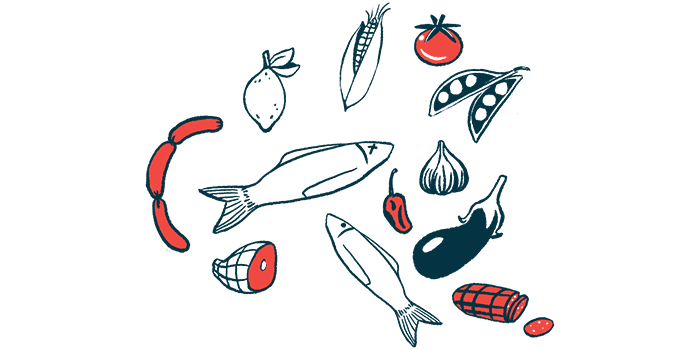Diet changes may treat pulmonary hypertension, study suggests
Avoiding intake of 2 amino acids may limit disease progression, researchers say
Written by |

A diet poor in two amino acids called glutamine and serine may improve the health of pulmonary blood vessels and reduce the progression of pulmonary hypertension (PH), according to a recent study.
Specifically, researchers found that these amino acids are used by cells in blood vessels to produce other amino acids that are components of collagen, leading to vessel stiffening — a hallmark of PH. Amino acids are the building blocks of proteins.
“For the first time, we have a dietary maneuver that may serve as an effective therapy for the disease,” Stephen Chan, MD, PhD, professor at the University of Pittsburgh and senior author of the study, said in a university press release.
“It opens up a new way that we could treat this disease, because now — instead of just relying on medications and transplantation — there are possibly effective lifestyle interventions,” added Chan, who is also director of the Center for Pulmonary Vascular Biology and Medicine at the University of Pittsburgh.
The study, “Dietary intake and glutamine-serine metabolism control pathologic vascular stiffness,” was published in the journal Cell Metabolism.
PH is characterized by high blood pressure in the pulmonary arteries, the blood vessels that supply the lungs, because the vessels become narrow and stiff.
Vascular stiffening is caused by several factors, particularly the excessive activation of fibroblasts, which maintain the structure of lung tissue and contribute to vascular remodeling through several proteins. Those includes collagen — the main protein component of connective tissue, which provides structure to tissues and organs.
However, “whether and how vascular fibroblasts rewire their metabolism to sustain collagen biosynthesis [production] remains unknown,” the researchers wrote.
Interpreting the study’s results
Now, using fibroblasts exposed to low oxygen levels, a PH trigger, they found that activated fibroblasts have a notable craving for glutamine and serine, which are used to produce amino acids called proline and glycine, the primary building blocks of collagen.
Then, using a rat model of PH, they discovered that by reducing the cellular use of glutamine and serine using specific chemical inhibitors, they could decrease collagen production and blood vessel stiffening.
Knowing that amino acids are often obtained from food, the team also found that reducing the dietary intake of glutamine- and serine-rich foods helped reduce collagen overproduction and consequent blood vessel stiffening.
“Together, our results offer foundational support for dietary intervention targeting glutamine and serine to improve pulmonary vascular stiffening, remodeling, and downstream PH,” the researchers wrote.
As a result, avoiding foods rich in glutamine and serine or eating foods with neither of these amino acids might improve the efficacy of current PH medications, the team suggested.
“By identifying the limiting metabolic pathways for vascular collagen biosynthesis, our findings provide guidance for incorporating metabolic and dietary interventions for treating cardiopulmonary vascular disease,” the researchers concluded.
“Future studies are warranted to determine whether dietary sources of these amino acids predominantly and directly directly contribute to lung vascular fibrosis [scarring] in PH or whether dietary alterations may also serve as a primary but indirect trigger to specific altered amino acid production and/or degradation in the lung as PH progresses,” they added.
Moreover, these findings may contribute to creating a new, noninvasive PH diagnostic test using positron emission tomography (PET) scan technology and a tracer to specifically assess glutamine uptake by lung cells.
According to the team, this screening could enable an earlier diagnosis, as well as the implementation of lifestyle and treatment approaches. It could also allow doctors to accurately monitor disease progression and treatment efficacy.




